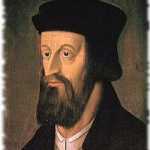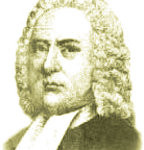About Protestantism
Various aspects of Protestantism, including but not limited to views on salvation, Bible versions, history, and denominations.
True Christianity seeks to ensure that all Christian teaching (doctrine) and Christian living is in agreement with Scripture (the Bible). The Protestant Reformation came about with this purpose in mind… an attempt – by many Catholic priests, monks and other Catholics – to reform (correct) the Catholic church to be in line with bible teachings. This is where the expression “Sola Scripturea” com from – which is Latin for Scripture Alone. The teachers and preachers who grew of out this “protestant” movement were protesting against many serious religious issues of their time:
- First and foremost: false teachings about salvation
- False teachings about God, Mary, Jesus and man’s own spiritual condition
- Serious abuses of power in the Catholic leadership
- Morally corrupt church leaders
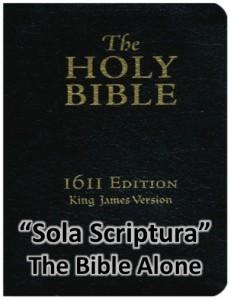
Keach’s Catechism
Keach’s Catechism
This is a scanned version of the 1689 London Baptist Confession
You can read this electronic book in several ways, including from the reader window below.
John Wycliffe
John Wycliffe
(also known as John Wiclif)
1328-1384
by Williston Walker
 The fourteenth century was an epoch of great changes. Mediaeval feudalism, with its strongly divisive spirit, was giving way to a new national feeling. A real sense of common unity of interest was beginning to be felt by the peoples of France, of England, and in a less degree of Germany. A new power was therefore rising, that of national life. It speedily entered into conflict with the… Continue reading
The fourteenth century was an epoch of great changes. Mediaeval feudalism, with its strongly divisive spirit, was giving way to a new national feeling. A real sense of common unity of interest was beginning to be felt by the peoples of France, of England, and in a less degree of Germany. A new power was therefore rising, that of national life. It speedily entered into conflict with the… Continue reading
John Huss
John Huss
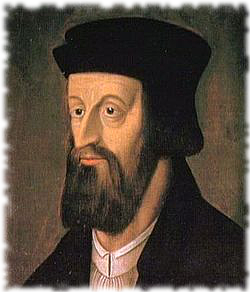 John Huss lived from 1369-1415. He was a Bohemian reformer. Huss was ordained to the priesthood of the Roman Catholic Church in 1401, after receiving the bachelor’s and master’s degrees at the University of Prague. He became a powerful preacher of Roman doctrine, until he began to translate some of the sermons of John Wycliffe into the Bohemian language. These sermons moved him to cry out for reform in the Church,… Continue reading
John Huss lived from 1369-1415. He was a Bohemian reformer. Huss was ordained to the priesthood of the Roman Catholic Church in 1401, after receiving the bachelor’s and master’s degrees at the University of Prague. He became a powerful preacher of Roman doctrine, until he began to translate some of the sermons of John Wycliffe into the Bohemian language. These sermons moved him to cry out for reform in the Church,… Continue reading
Charles Spurgeon
Charles H. Spurgeon
1834-1892

Charles Haddon Spurgeon was the descendant of several generations of Independent ministers/ He was born at Kelvedon, Essex, and became a Baptist in 1850. In the same year he preached his first sermon, and in 1852 he was appointed paster of the Baptist congregation at Waterbeach. In 1854 he went to Southwark, where his sermons drew such crowds that a new church, the Metropolitan Tabernacle in Newington Causeway, had to be… Continue reading
John Gill and His Successors
John Gill and His Successors
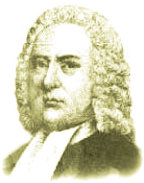
The witness and teaching of Dr John Gill (1697-1771) so impressed his friends Augustus Toplady and James Hervey that they maintained his work would still be of great importance to future generations. This also became the conviction of John Rippon (1750-1836) and Charles Haddon Spurgeon (1834-1892), Gill’s more well-known successors to his pastorate, but it was also the testimony of those who served for shorter periods at Carter Lane such as John Martin, Benjamin… Continue reading
